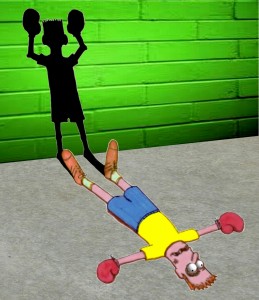“If only” and “what if” are often associated with coulda, woulda and shoulda by playing a part in the regret. Coulda, woulda and shoulda such seemingly innocuous words are often used to create a powerful feed. Those three little words can twist possibilities into absolutes by making what didn’t happen a huge mistake and what might happen a potential disaster.
A good feed begins with the feeder agreeing or disagreeing with the feedee, who is defending their chosen reality. The challenge to one’s reality will always bring up defense. Feedees feed on not being good enough while the feeders, like any predator, feeds on being better than others. Artificially generated claims of knowing and understanding another’s experience all bring on the feast by sheer need to prove validity of reality.
The feeder and the feedee are actually both feeding – just from different sides of justification; the feedee, trying to justify not being good enough, the feeder, trying to justify being better than others.
What if the feedee is fed back what they don’t want to hear?
“If only I coulda… [done the right thing],
then maybe things woulda [turned out better]”.— Feeder Response —
“Yeah! You shoulda…!!! (judgmental voice)
— or—
“If only I woulda listened when you told me…,
then maybe things woulda [turned out better]”.— Feeder Response —
“Yeah, if only you woulda…!!! (judgmental voice)
— or —
“I shoulda said, done, been a better [object of judgment],
then maybe things woulda [turned out better].”— Feeder Response —
“Yeah! You shoulda…!!! (judgmental voice)
How can we stop justifying a reality we have defended for so long, especially when we know we are right?

